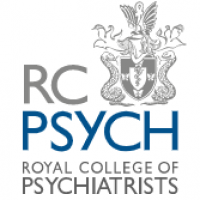Understanding and supporting somebody living with dementia
Dementia is an umbrella term which refers to a group of diseases and conditions that affect the brain. Although Dementia is not a disease itself, it is a collection of symptoms.
“Dementia is a syndrome (a group of related symptoms) associated with an ongoing decline of brain functioning.” – NHS
Diagnosis of dementia in a loved one can be difficult for family and friends of the patient. Adjusting to a new way of life is often the most difficult part. Emotional, practical, social and psychological changes will impact a family.
For carers, family and friends, it’s important to understand that making a dementia patient feel valued and included is often the best way to approach the condition. Those around a patient need to get to know how the condition has impacted the individual as every patient will experience slightly different symptoms at different levels. As well as this, ask loved ones how they feel about their symptoms and condition – communication is key to supporting and feeling better about the situation.
Dementia progresses at different speeds and although it is non-reversible there are things you can do to improve a patients quality of life. Providing a healthy daily routine and safe living environment is something you can do to help.
In the early stages of dementia, patients are able to enjoy life in a similar way to before their diagnosis. As the condition progresses, patients will experience more advanced symptoms and may need further help with daily tasks. During this time, patients are likely to feel anxious and confused. It would be helpful to adapt activities or tasks to make them simpler, or less confusing. For example, shopping could be done online or watching TV programs that may be easier to follow.
As a carer or family member, you could suggest the use of memory prompts around the house. Post-it notes could be used on cupboards or items.
Dementia has many other effects apart from memory loss and another way you can be supportive is to familiarise yourself with some further effects of the condition.
- Memory Loss.
- Difficulty concentrating on tasks.
- Mood changes.
- Being confused (often about the time or a location).
- Struggling to follow a conversation.
- Not being able to remember the correct word.
- Difficulty completing everyday tasks, cooking, shopping, driving.
It is also important to support a dementia patient with eating and drinking. Just like everybody else, a patient needs to drink enough and consume the correct amount of vitamins and nutrience. If not, it can cause complications and lead to a patient being undernourished. Try involving a patient in preparation of food, if possible, and try stronger flavours to make dishes interesting. If a loved one struggles with cutlery, finger food could be an option.
Help to make appointments:
Dementia patients need to continue to see their Doctor, Dentist, Optician, Podiatrist etc. Taking over with making and managing appointments could be a massive help. Time keeping can be especially difficult for patients.
Help using the bathroom:
Although sometimes upsetting or uncomfortable, patients may need help using the bathroom. Approaching the situation with an open mind can help your loved one to feel more comfortable. Try to look out for signs that could mean a patient needs the bathroom…fidgeting or standing up and down. It might be a good idea to fit regular toilet trips into the daily routine.
For loved ones, seeing a parent or family member experience dementia can be difficult. We are here to offer you support during this difficult time.
Dr Behzad Basit is an experienced Psychiatrist who helps patients with living with dementia. With his medical career starting in 1988, Dr Basit been described by patients and colleagues as very approachable and can help patients experiencing problems with memory and possible Dementia. His background in general practice, psychiatry and psychotherapy enables him to take a holistic approach in assessment and management of patients.
We invite you to learn more about Dementia here.
To book a consultation with Dr Behzad Basit, please complete our contact form here.









